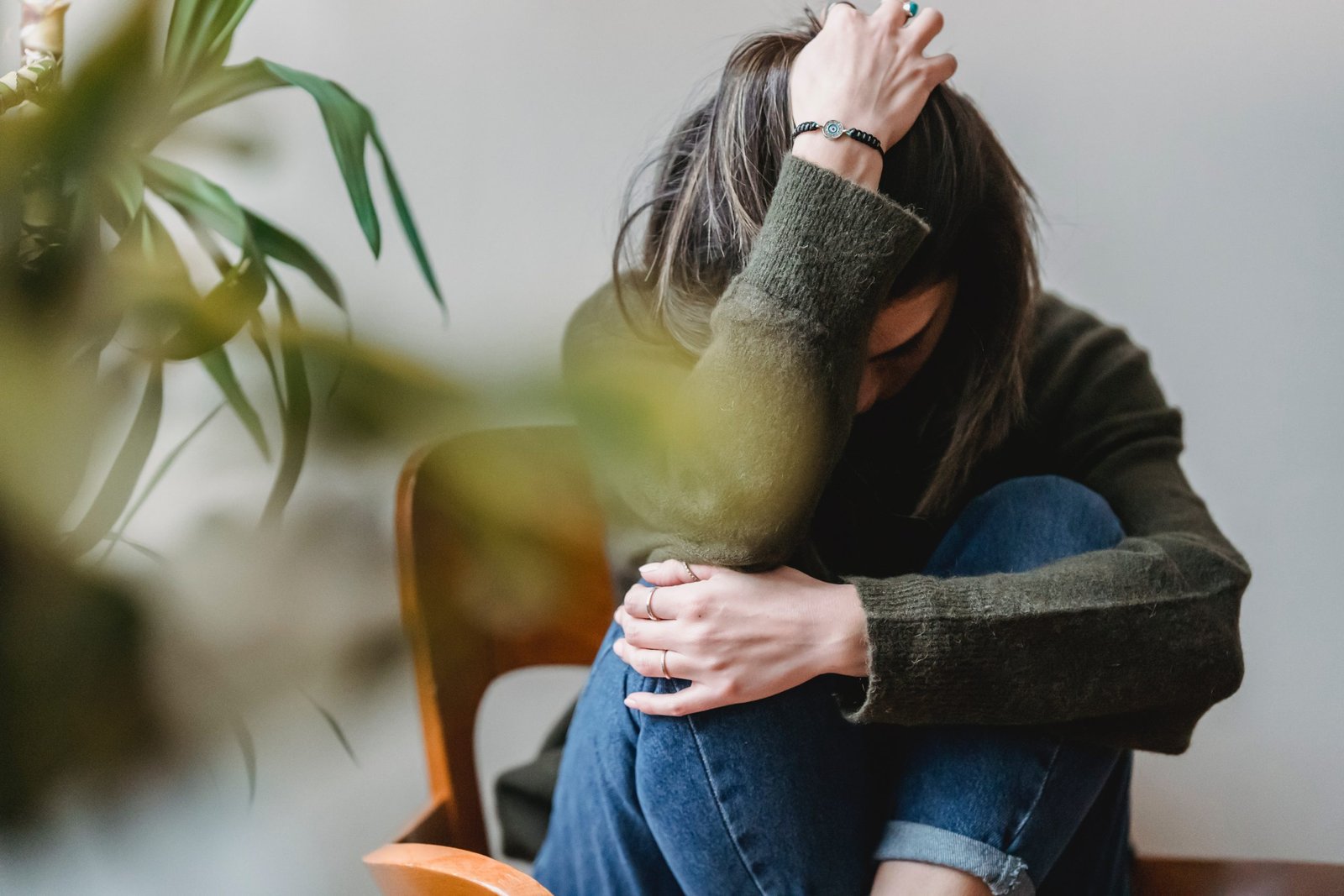In the year 2019, the estimated number of people suffering from anxiety disorders was approximately 4 percent of the world’s population and 6.16 percent in the USA. This makes this mental issue, in conjunction with depression, among the most frequent mental health issues across the globe.
“With treatment, many people with anxiety disorders can manage their feelings, but we have to understand them first”
Anxiety is a normal part of human emotions along with worry, fear, tension, or apprehension about what is to come. So it’s a normal part of life, everyone is affected by it to a certain degree, while it can be unpleasant and usually short-lived. But, if it becomes intense and persists for a long time, it could be crippling and also a burden. With treatment, many people with anxiety disorders can manage their feelings, but we have to understand them first.
There are several types of anxiety disorders
Generalized anxiety disorder.
You feel excessive, unrealistic worry and tension with little or no reason.
Panic disorder.
You feel sudden, intense fear that brings on a panic attack. During a panic attack you may break out in a sweat, have chest pain, and have a pounding heartbeat (palpitations). Sometimes you may feel like you’re choking or having a heart attack.
Social anxiety disorder.
Also called social phobia, this is when you feel overwhelming worry and self-consciousness about everyday social situations. You obsessively worry about others judging you or being embarrassed or ridiculed.
Specific phobias.
You feel intense fear of a specific object, place, or situation, such as heights, buildings, or flying. The fear goes beyond what’s appropriate and may cause you to avoid ordinary situations.
Separation anxiety.
Little kids aren’t the only ones who feel scared or anxious when a loved one leaves. Anyone can get separation anxiety disorder. If you do, you’ll feel very anxious or fearful when a person you’re close to leaves your sight. You’ll always worry that something bad may happen to your loved one.
Selective mutism.
This is a type of social anxiety in which young kids who talk normally with their family don’t speak in public, like at school.
Medication-induced anxiety disorder
Use of certain medications or illegal drugs, or withdrawal from certain drugs, can trigger some symptoms.
The main symptom of anxiety disorders is excessive fear or worry. They can also make it hard to breathe, sleep, stay still, and concentrate. Your specific symptoms depend on the type of anxiety disorder you have. because each type has its own set of symptoms.
“The main symptom of anxiety disorders is excessive fear or worry, but there are more.”
Common symptoms of anxiety disorders
There are so many symptoms, sometimes the patient shows some of this list and sometimes a set of them depending on the gravity of the situation.
Panic, fear, and uneasiness.
Feelings of panic, doom, or danger.
Sleep problems.
Not being able to stay calm and still.
Cold, sweaty, numb, or tingling hands or feet.
Shortness of breath.
Breathing faster and more quickly than normal (hyperventilation).
Heart palpitations.
Dry mouth.
Nausea.
Tense muscles.
Dizziness.
Thinking about a problem over and over again and unable to stop (rumination).
Inability to concentrate.
Intensely or obsessively avoiding feared objects or places.
Researchers don’t know exactly what brings on anxiety disorders. A complex mix of things play a role in who does and doesn’t get one.
Some causes of anxiety disorders are:
Genetics.
Anxiety disorders can run in families.
Brain chemistry.
Some research suggests anxiety disorders may be linked to faulty circuits in the brain that control fear and emotions.
Drug withdrawal or misuse
Certain drugs may be used to hide or decrease certain anxiety symptoms. Anxiety disorder often goes hand in hand with alcohol and substance use.
Medical conditions.
Some heart, lung, and thyroid conditions can cause symptoms similar to anxiety disorders or make anxiety symptoms worse.
When talking to your doctor about anxiety, it’s important to get a full physical exam to rule out other medical conditions.
Some things also make you more likely to develop an anxiety disorder. These are called risk factors. Some risk factors you can’t change, but others you can.
Risk factors for anxiety disorders
History of mental health disorder. Having another mental health disorder, like depression, raises your risk for anxiety disorder.
Childhood sexual abuse. Emotional, physical, and sexual abuse or neglect during childhood is linked to mental disorders later in life.
Trauma. Living through a traumatic event increases the risk of posttraumatic stress disorder (PTSD), which can cause panic attacks.
Negative life events. Stressful or negative life events, like losing a parent in early childhood, increase your risk for anxiety disorder.
Severe illness or chronic health condition. Constant worry about your health or the health of a loved one, or caring for someone who is sick, can cause you to feel overwhelmed and anxious.
Substance abuse. The use of alcohol and illegal drugs makes you more likely to get an anxiety disorder. Some people also use these substances to hide or ease the symptoms.
Shyness. withdrawal from unfamiliar people and places during childhood is linked to social anxiety in teens and adults.
Low self-esteem. Negative perceptions about yourself may lead to social anxiety disorder.
If you have symptoms, your doctor will examine you and ask questions about your medical history. They may run tests to rule out other health conditions that might be causing your symptoms. No lab tests can specifically diagnose anxiety disorders.
“Understanding your anxiety helps determine the right medication”
Your doctors will consider how long you’ve had symptoms and how intense they are when diagnosing you. It’s important to let your doctors or counselors know if your anxiety makes it hard to enjoy or complete everyday tasks at home, work, or school.
Treatments for anxiety disorder
Medication:
Several types of drugs are used to treat anxiety disorders. The most popular ones are Antidepressants. Modern antidepressants (SSRIs and SNRIs) are typically the first drugs prescribed to someone with the disorder. Talk to your doctor or psychiatrist about the pros and cons of each medicine to decide which one is best for you. There are so many, and understanding your anxiety helps determine the right medication.
Psychotherapy:
This is a type of counseling that helps you learn how your emotions affect your behaviors. It’s sometimes called talk therapy. A trained mental health specialist listens and talks to you about your thoughts and feelings and suggests ways to understand and manage them and any other mental health issues.
Cognitive behavioral therapy (CBT):
This common type of psychotherapy teaches you how to turn negative, or panic-causing, thoughts and behaviors into positive ones. You’ll learn ways to carefully approach and manage fearful or worrisome situations without anxiety. Some places offer family CBT sessions.
Self-care and stress management:
Can also play an integral role in combatting anxiety. This may involve eating healthily, getting enough restful sleep, engaging in enjoyable activities that bring joy and relaxation, etc.
Religion:
For some reason, religion is almost absent when people talk about medicine and researches about anxiety even though religion has often been regarded as a source of solace and support for individuals facing or living with this mental health condition for years.
Through its teachings and practices, religion offers a framework for finding meaning, purpose, and inner peace. Engaging in prayer, meditation, or religious rituals can provide a sense of calm and connection with a higher power, providing reassurance and comfort during times of distress, Prayer and meditation are highly effective in lowering our reactivity to traumatic and negative events, thoughts, or feelings.
Additionally, religious communities often offer social support networks that promote a sense of belonging, understanding, and guidance, which can be instrumental in managing anxiety and fostering overall well-being.
Others:
These lifestyle habits also help:
Exercise
Yoga
A healthy diet
Getting enough sleep
Avoiding caffeine, chocolate, or any other stimulant.
Avoiding alcohol and other drugs
Meditation
Relaxation techniques such as deep breathing
Helping Someone Cope With Anxiety
When caring for a loved one with mental health problems, it is crucial that they feel supported and understood. Recognizing signs such as excessive worry, restlessness or avoidance of certain situations is an effective way to identify when your loved one may need support and understanding.
Communicating with and assuring your loved one of your presence can also be immensely helpful. Encourage them to seek professional assistance and offer help and company as much as possible, the worst thing for the patient is to feel lonely.
“With proper care and treatment, you can learn how to coexist with your symptoms and thrive.”
Some things to remember
Anxiety is a treatable condition and the severe cases of its disorders are manageable, Becoming familiar with its causes and symptoms as well as ways to cope with and manage it will allow individuals to lead fuller lives.
It can take some time to find the right treatment that works. If you have more than one anxiety disorder, you may need several kinds of treatment. For most patients, a combination of medicine and counseling is best. With proper care and treatment, you can learn how to coexist with your symptoms and thrive.













